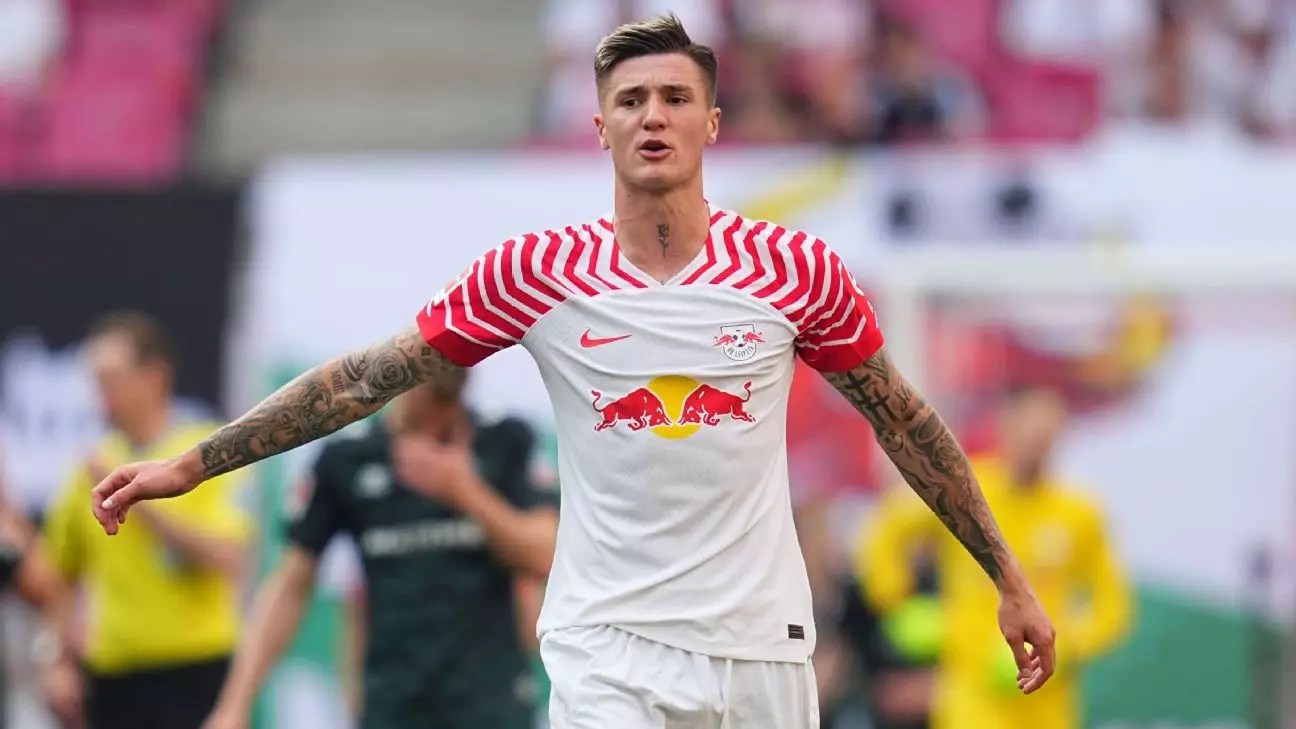In the ever-evolving landscape of European football transfers, Bayern Munich has reignited its interest in the promising Athletic Club winger, Nico Williams. The Bavarian giants have lodged a substantial offer that reportedly includes a lucrative salary of €12 million per year for the 22-year-old Spaniard, according to Sky Sport Germany’s Florian Plettenberg. This move highlights Bayern’s persistent strategy of identifying and nurturing young talent, a hallmark of their recent recruitment approach.
Although Williams has expressed a preference for a transfer to Barcelona, the economic turmoil surrounding the Catalan club has left the door ajar for Bayern. The German side is banking on Barcelona’s financial miscalculations to tip the scales in their favor. As it stands, Williams remains guarded about his future, choosing not to discuss personal terms with Bayern as he awaits further communication from Barcelona. His contract with Athletic continues until June 2027, but the swirling rumors suggest that a shift could be imminent.
Bayern Munich’s interest signifies a potential shift in power dynamics within European football as clubs adapt their strategies in response to the ongoing financial constraints afflicting traditional powers like Barcelona. If Bayern successfully adds Williams to their roster, it could prove to be a masterstroke, especially given the winger’s explosive pace and technical proficiency.
Arsenal’s Dilemma: Backing Out or Moving Forward?
On the flip side, Arsenal appears to be reconsidering its ambitions to secure RB Leipzig striker Benjamin Sesko. Sources suggest that financial disagreements regarding the Slovenian star’s wage demands have led Mikel Arteta’s side to reevaluate their earlier commitment. As the Gunners seek a new forward to spearhead their attack, the hesitation surrounding Sesko raises valid questions about the club’s transfer strategy.
While Sesko was perceived as a primary target, the discussion of personal terms has hit a standstill. Arsenal may now pivot towards alternative signings, with Sporting CP’s Viktor Gyökeres emerging as a key candidate. However, competition is rife, particularly from Manchester United, which adds another layer of complexity to Arsenal’s pursuit. The uncertainty surrounding this transfer not only impacts Arsenal’s immediate plans but also serves as a cautionary tale about the risks inherent in relying too heavily on individual targets in a competitive transfer market.
Al Hilal’s Ambitious Moves and Serie A Sensations
Meanwhile, Al Hilal’s attempts to finalize a deal for AC Milan left-back Theo Hernández depict the increasing allure of football clubs in the Middle East. With ongoing negotiations reportedly nearing completion, the French international’s potential switch marks yet another audacious move in Al Hilal’s ongoing strategy to attract top-tier talent. Given that Hernández is under contract until June 2026, Milan is under pressure to conclude negotiations favorably to avoid losing him for nothing down the line.
Moreover, AC Milan is also looking to bolster its midfield by pursuing Granit Xhaka, valued at €10 million. However, Bayer Leverkusen has expressed a desire for a higher fee, demonstrating the challenging nature of transfer negotiations. In this context, Milan’s ambition reflects a broader trend in which clubs are not merely content with their current rosters but are actively seeking to strengthen their squads in anticipation of a grueling next season.
Crystal Palace’s Hunt for Young Talent
At the other end of the spectrum, Crystal Palace is in discussions with Chelsea goalkeeper Luke Campbell, who stands on the brink of a free transfer as his contract nears expiration. This move underscores the increasing trend of clubs looking to acquire young talent at minimal costs—a strategy that is proving successful for teams in the Premier League’s middle tier.
The interest from clubs like Queens Park Rangers highlights the fierce competition for emerging players, emphasizing the importance of scouting and youth development in today’s game. As these discussions unfold, it raises questions about the potential impact of emerging talent on the footballing landscape and whether clubs will be willing to invest in youth over more established names.
In a rapidly shifting footballing environment, the transfer window serves not only as a means to acquire talent but as a crucible for defining club identities and priorities. Each decision made by these clubs could significantly influence their fortunes in the seasons ahead.


Leave a Reply